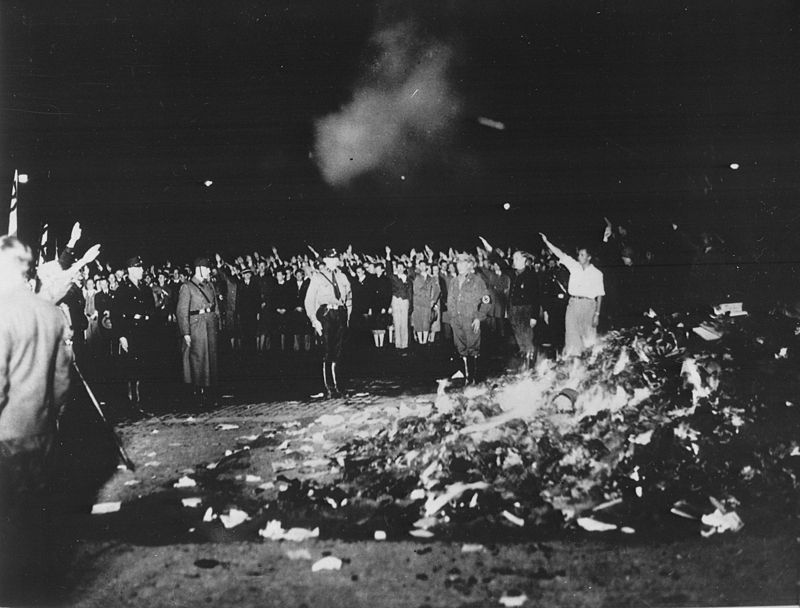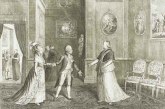
Story Highlights
- Historical event:
- 10 May 1933
- Among the Jewish authors whose books were burned were Albert Einstein, Sigmund Freud, Franz Werfel, Max Brod, Franz Kafka, and many others. From the left-wing authors the books of Karl Marx, Friedrich Engels, Bertolt Brecht, Leon Trotsky, etc. were also burned.
On this day the Nazis staged the first public burning of unwanted books.
It happened at the Berlin Opera Square, not far from the entrance to the famous Humboldt University. At the meeting, Nazi propaganda minister Joseph Goebbels delivered an address: “No to decadence and moral corruption! Yes to decency and morality in family and state.”
University students brought about 25,000 books to the burning, which allegedly did not comply with the German spirit. Those were the books of Jewish authors, socialists, and even Christians who did not support the Nazis.
Among the Jewish authors whose books were burned were Albert Einstein, Sigmund Freud, Franz Werfel, Max Brod, Franz Kafka, and many others.
From the left-wing authors the books of Karl Marx, Friedrich Engels, Bertolt Brecht, Leon Trotsky, etc. were also burned. The most interesting is that the books by American authors such as Ernest Hemingway and Helen Keller, and European classics such as Victor Hugo, Marcel Proust, Andre Malraux and H.G. Wells were also burned.
Even the poems of German poet Heinrich Heine were burned, who 110 years earlier wrote: “where they burn books, they will ultimately burn people as well.”
It is interesting that the Allies, after World War II, did something similar to book burning with Nazi literature. Specifically, in 1946 a decision was made on confiscating and destroying some 30,000 unwanted titles, including such classics as the military works of Carl von Clausewitz.




